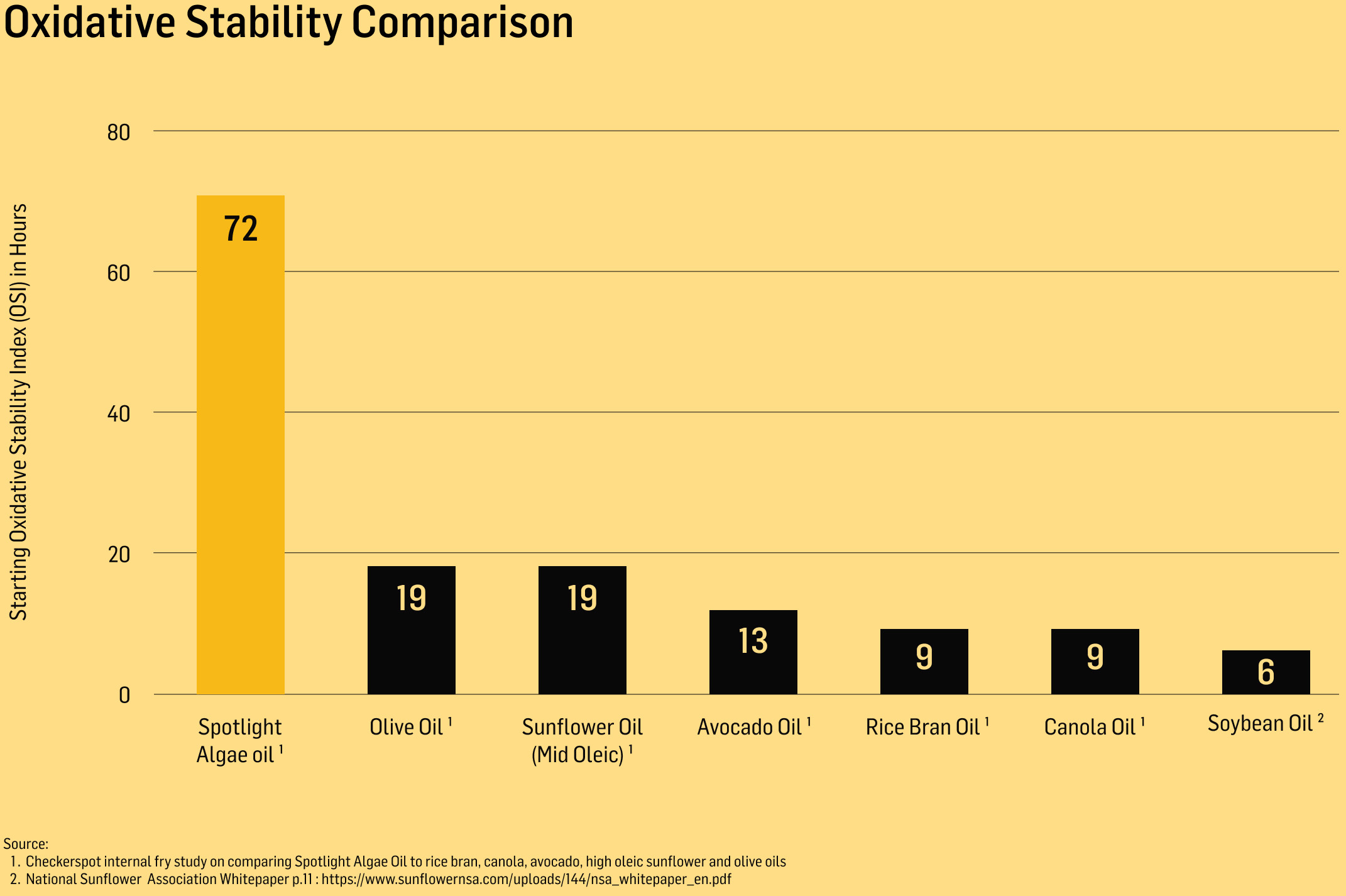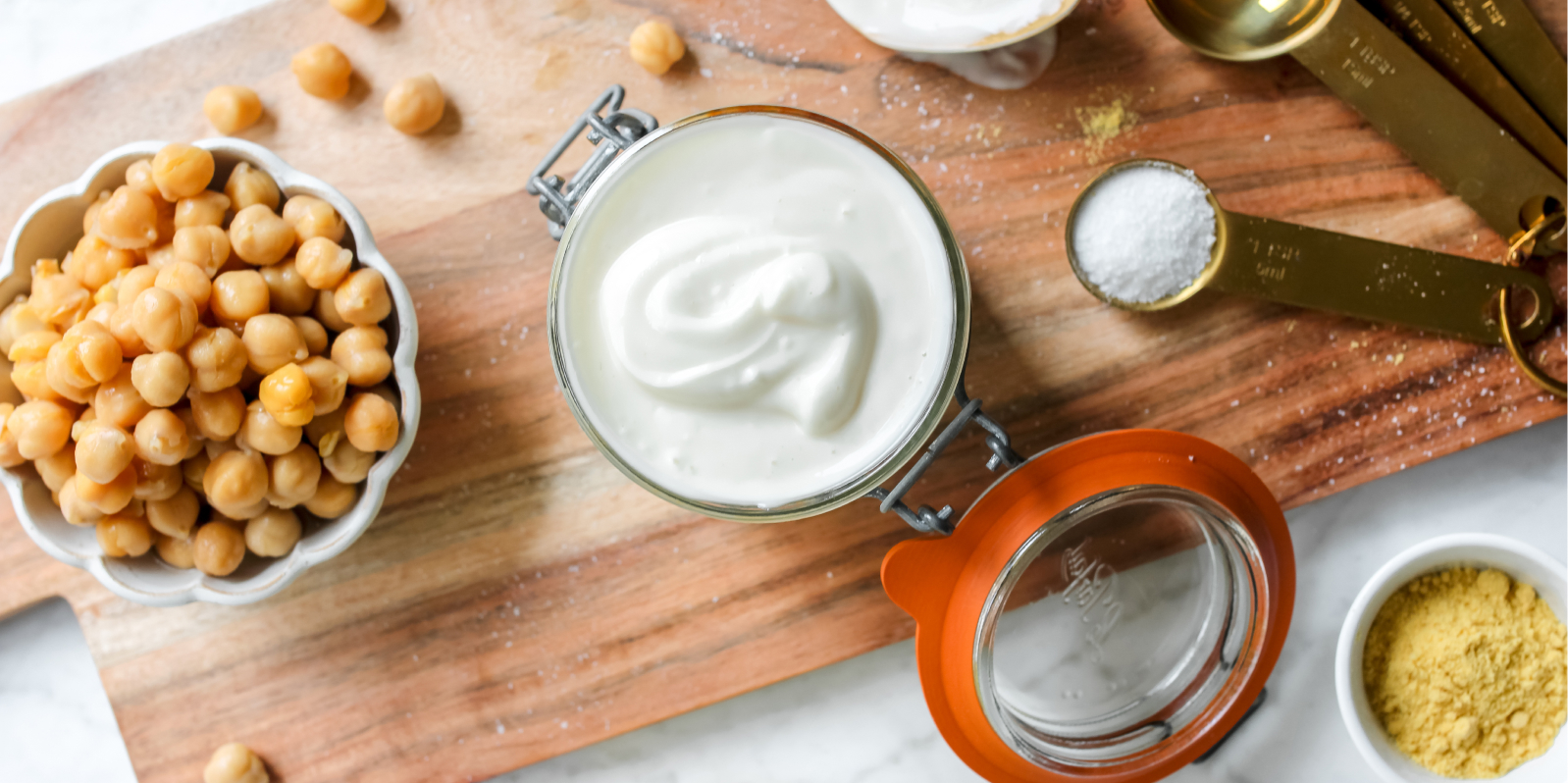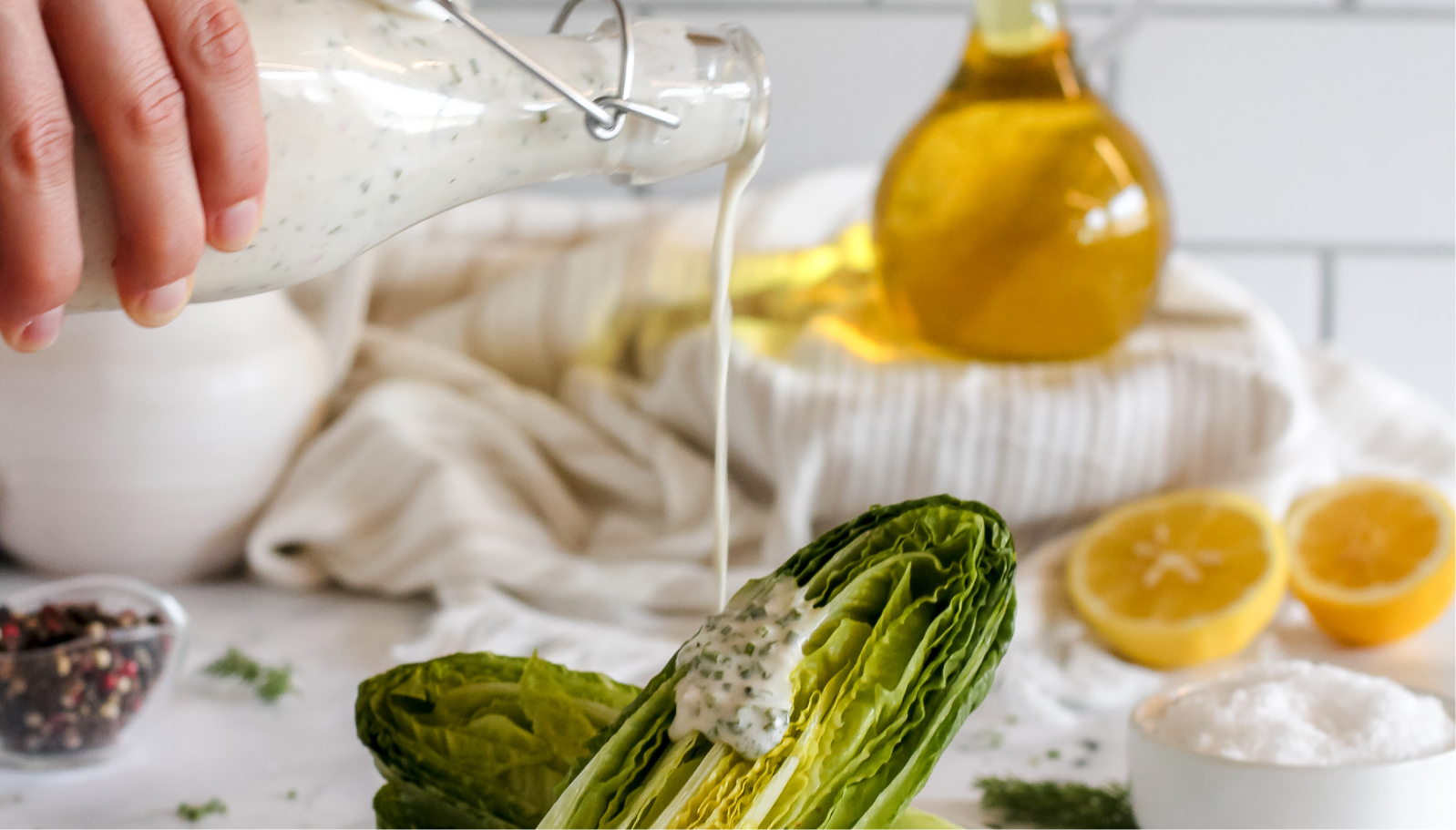Sustainability Spotlight
Long Fry Life Reduces Waste
Impressive Stability Improves Shelf Life
Plant-Based Eating is More Delicious

Algae oil has a very high oxidative stability index (OSI). What it means is that our oil lasts a long time, especially under stressors like high heat.
We fried plain potatoes in algae oil, rice bran and canola oil 10 times, using the same batch of oil for each round frying. As we fried the potatoes in each oil, we measured the OSI, and found that our oil held up over time and was about 5-7x more stable all the way from the first frying to the 10th.
We also had a blind panel of 9 of our employees taste the potatoes. Across the board, they liked the potatoes fried in algae oil better than those fried in canola oil or rice bran oil.
What this means for you
Save money by using less oil and creating less waste.

Spotlight™ oil is remarkably stable, which makes it ideal for batch preparation and reducing food waste in the kitchen. Our chef compared Spotlight recipes to recipes with canola oil, butter, and/or eggs, and in some cases also compared them to “alternative” dairy-free or vegan ingredients.
Some Highlights
- Spotlight™ vinaigrette stayed well-blended with a fluffy texture for over two weeks, while a version made with a canola oil separated after two days.
- Spotlight™ vegan mayo remained as fresh as the day it was made after three weeks!
- Spotlight™ pesto was tasty for over two weeks, while a version made with canola oil had a noticeable sheen and separated over the first week.
- Spotlight™ chocolate chip cookies were good 48 hours after baking. Cookies made with traditional and “alternative” butter and eggs were dry and chewy after one day, and the fats leached out of the cookies.
- Spotlight™ lemon cakes stayed moist and the lemon flavor was able to shine through in each bite, while cakes made with butter and eggs were dry and waxy after just a day.
What this means for you
This oil can help extend shelf life, enabling batch preparation of go-to recipes in advance. Use what you have, and have it taste better.

Studies have found that shifting diets away from animal-derived products and consuming more fruits, vegetables, grains, and beans can help reduce our carbon footprint, mitigate climate change, and improve human health.* However, well-intentioned efforts will not succeed if food doesn’t taste good.
Algae oil is particularly well suited to mimic the creamy, silky, fluffy, and whipped textures that traditional or “alternative” dairy and eggs provide in some recipes. It is an invaluable ingredient to make delicious dairy-free or vegan recipes including cocktails, dips and dressings, baked goods, and plant-based milks and creamers.
What this means for you
Create a delicious menu that happens to also be vegan or dairy free.
*https://www.ipcc.ch/report/ar6/wg3/